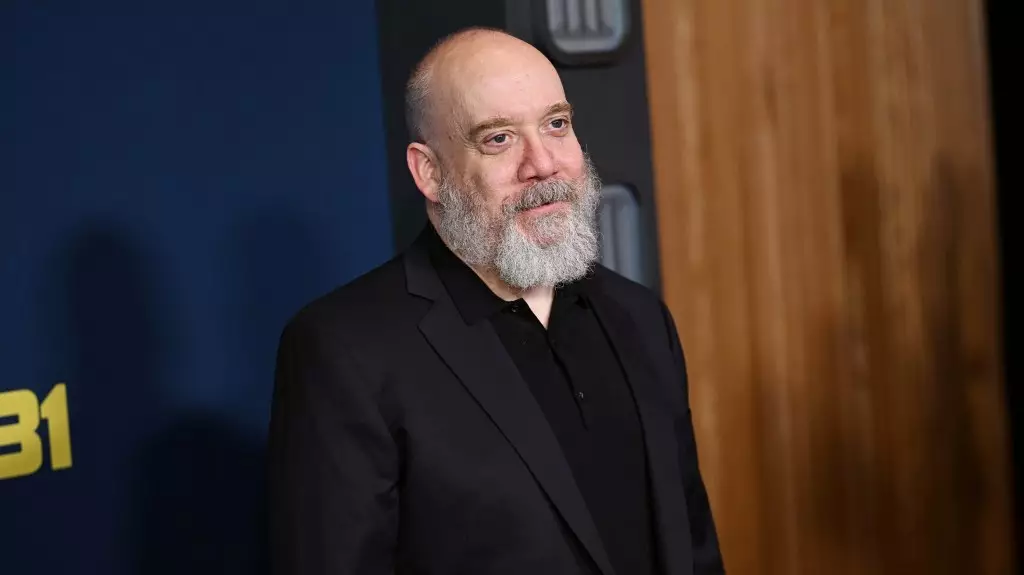The entertainment world is colored by the personalities that inhabit it, and few characters have left an indelible mark quite like Dame Maggie Smith’s portrayal of Violet Crawley, the Dowager Countess of Grantham, in the much-acclaimed series Downton Abbey. Paul Giamatti, who reprises his role as Harold Levinson in the upcoming film “Downton Abbey: The Grand Finale,” recently expressed deep reflections on her death and its impact on the production. Giamatti’s sentiments not only underscore the economic void created by Smith’s absence but indicate a complex emotional landscape that the cast and crew navigate as they endeavor to honor her legacy.
Violet Crawley is more than a fictional matriarch; she epitomizes the wit and wisdom that the series so beautifully captured over its run. Giamatti’s articulation of her spirit living on through the film provides a poignant reminder that films and television are living art forms often imbued with the essence of their performers. They transcend mere storytelling, channeling emotions that resonate in the hearts of the audience. Indeed, losing such a cornerstone of the series leaves a palpable sense of melancholy, particularly as the narrative facade continues in her absence.
Returning to a Familiar World
Giamatti’s casting in this third installment was a mild surprise, even to him. Initially stepping into the role during a Christmas special, he was skeptical about how his character could contribute significantly to the narrative of a show that has evolved into a cinematic legacy. However, Giamatti’s self-reflection speaks to the unpredictable nature of creativity. What may seem like a minor role can burgeon into a key element that drives the narrative forward, thus reaffirming that in storytelling, no element is extraneous. His remarks ignite a discourse on the fluid boundaries of character significance in ensemble casts, particularly when returning to a well-loved universe.
The anticipation surrounding Giamatti’s participation reveals a desire among viewers to reconnect with familiar characters and their intricate relationships. With the return of several mainstay actors alongside Giamatti, the audience is granted a further glimpse into the evolving tapestry of both the characters’ lives and the socio-historical context in which they operate. This intricate web, where character arcs intersect and influence one another, is central to the allure of Downton Abbey, and Giamatti’s role, irrespective of its initial scope, seems promising as it incorporates fresh dynamics into the established narrative.
A Tribute Wrapped in Poignancy
The impact of Dame Maggie Smith’s departure cannot be overstated, and the production team, as led by executive producer Gareth Neame, appears to tread carefully in a landscape steeped in remembrance and reverence. The notion that the film will wrap its narrative in a meaningful tribute to Smith integrates authenticity into what might otherwise feel like a celebrations masquerading as entertainment. This is poignantly layered, as the actors too, are now participating not only in the lives of their characters but also in mourning the loss of a matriarch who guided them through the adaptation of their performances over the years.
In the narrative of “Downton Abbey: The Grand Finale,” these reflections manifest in ways that blur the lines between fiction and reality. The forthcoming film allows us to witness characters navigating grief and loss, which resonates deeply with an audience that has loved and cherished Smith’s character for a decade or more. This ties the hands of its creators with added responsibility: to craft a narrative that reflects real emotional struggles while simultaneously celebrating the legacy of a great actress.
In this sobering moment of reflection, Giamatti’s comments and Neame’s insights suggest that the decision to move forward with the film was fueled by necessity—a way to create not just entertainment, but a profound connection rooted in shared experience, one that allows audiences to engage with the universal truths of love, loss, and memory. With a release date set for September 12, anticipation builds not merely for the film itself but for what it represents—a continuation of a legacy, both honoring Smith and redefining the portrayals of grief in the evolving world of Downton Abbey.

Leave a Reply